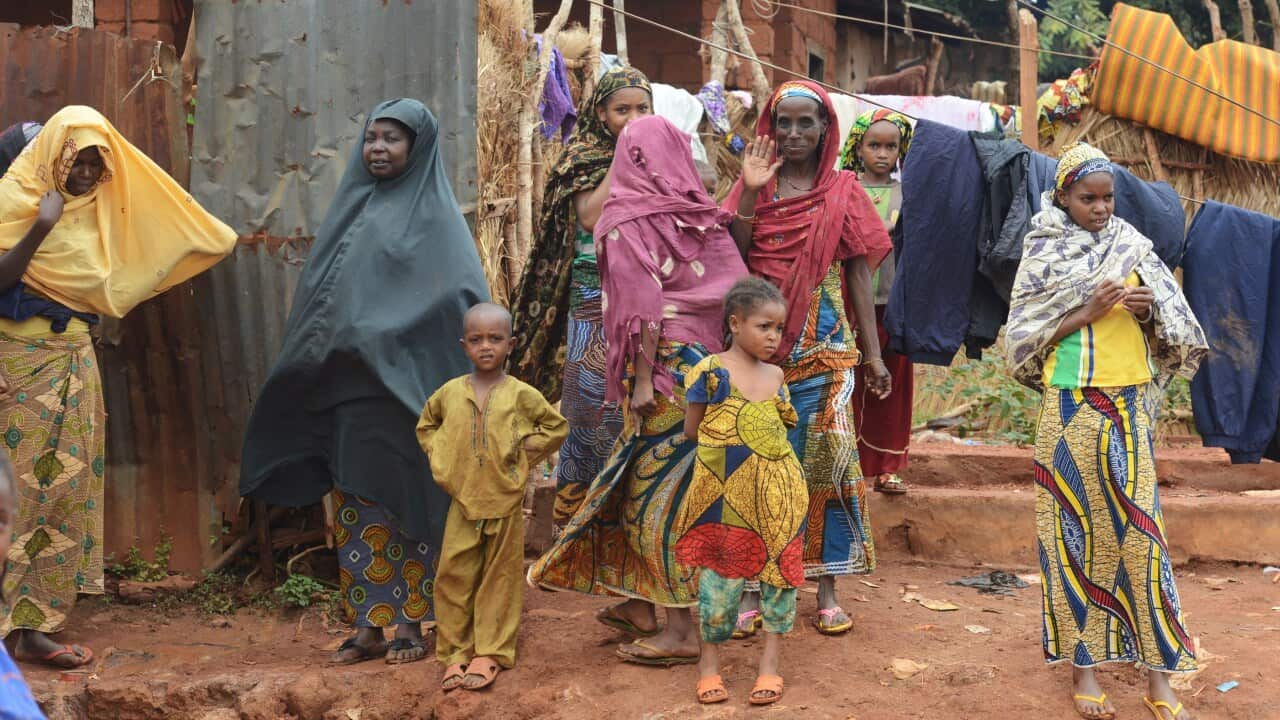(Transcript from World News Radio)
Aid agencies and religious leaders have appealed for calm amid claims that ethnic religious cleansing is taking place in the Central African Republic.
The human rights group Amnesty International says it has documented at least 200 killings of Muslim civilians by Christian militia groups known as the anti-balaka, set up in the wake of a coup in March last year by the mainly Muslim Seleka rebels.
The United Nations says the violence between rival groups has killed more than two thousand people and left a quarter of the country's 4.5 million people homeless since it began in 2013.
But Christian and Muslim leaders believe religion should not be at the centre of the crisis and they have appealed for all groups to work towards a lasting peace.
Michael Kenny reports.
(Click on audio tab above to listen to this item)
Aid groups say there has been a marked increase in violence in the Central African Republic after the Muslim Seleka leader Michel Djotodia resigned under international pressure last month.
They say the resignation triggered a wave of vicious reprisals by Christian militia against Muslims which has included mass killings, rapes and torture.
And the rights group, Amnesty International, says the unrest has continued under the leadership of a new Interim President Catherine Samba-Panza, a former mayor of Bangui who was appointed last month.
While initially promising to end the communal violence, Ms Samba-Panza has now vowed to wage war against the Christian militia, accusing it of ethnic cleansing.
The United Nations High Commissioner for Refugees Antonio Guterres has also called for an end to what he describes as an ethnic-religious cleansing in the Central African Republic.
An Amnesty International spokeswoman in Bangui, Joanne Mariner says thousands of terrified Muslims have fled the CAR in recent months.
"What we're seeing is massive forced displacement of Muslims out of towns and villages across the country by means of violence and terror. So essentially in many places, you don't have the presence of international peacekeepers to protect Muslims and you had attacks by these Christian anti balaka militia against Muslim civilian populations."
There are currently more than 5000 African Union troops in the country, with another thousand expected next month.
France has deployed 1600 troops while the European Union has promised to deploy 500 troops at the beginning of March.
The Commander of French Forces in the Central African Republic, General Francisco Seriano, says it has been a daunting challenge to try to restore order.
"We need to stop the troublemakers, especially those claiming to be anti-balaka and we know that there are among them looters and thugs, some criminals and that is really clear today from our efforts. Today, they are the troublemakers, they are the ones causing heavy losses among the population. They are the ones stigmatising communities and they have become enemies of peace in this country."
Christian and Muslim community leaders have condemned the violence, and have appealed for community harmony.
The Catholic Archbishop of Bangui Dieudonne Nzapalainga says he is appalled by the actions of militant groups.
"Anti-balaka are not a Christian wrongdoing. I have said and I repeat loud and strong for the media. It's not about a Christian wrongdoing. I didn't send a priest to manage a group who will attack the people."
The Imam from Bangui's Grand Mosque, Oumar Kobine Layama says he believes it is wrong to blame the latest unrest on religion.
"We have no right to put religion at the centre of a crisis, at the centre of suffering, of the suffering of a population. So right now we call on everyone today, so that we can truly raise our voice to say no more to this crisis and to live together. That must be our strategy."
The months of unrest in the country have triggered major food shortages with the U-N estimating that over one-million people are in urgent need of food supplies.
The UN's World Food Program says it is sending hundreds of tonnes of cereals to Bangui on about 25 flights over the next four weeks.
African studies lecturer Professor Helen Ware from the University of New England is a former Australian High Commissioner in several African countries.
Professor Ware believes the conflict in the Central African Republic stems from socio-economic rather than religious differences because many Muslims in Bangui tend to own local businesses and some other members of the population resent their success.
She believes the United Nations needs to urgently push for safe zones for refugees fleeing the conflict because the current troops there are struggling to adequately protect civilians.
"Six or seven thousand troops is hardly a massive number in a country with significant territory and a population of about five million people. So safe zones seems to me to be the pragmatic solution and to get an agreement about those as an interim measure because the first thing is to stop the killing."

